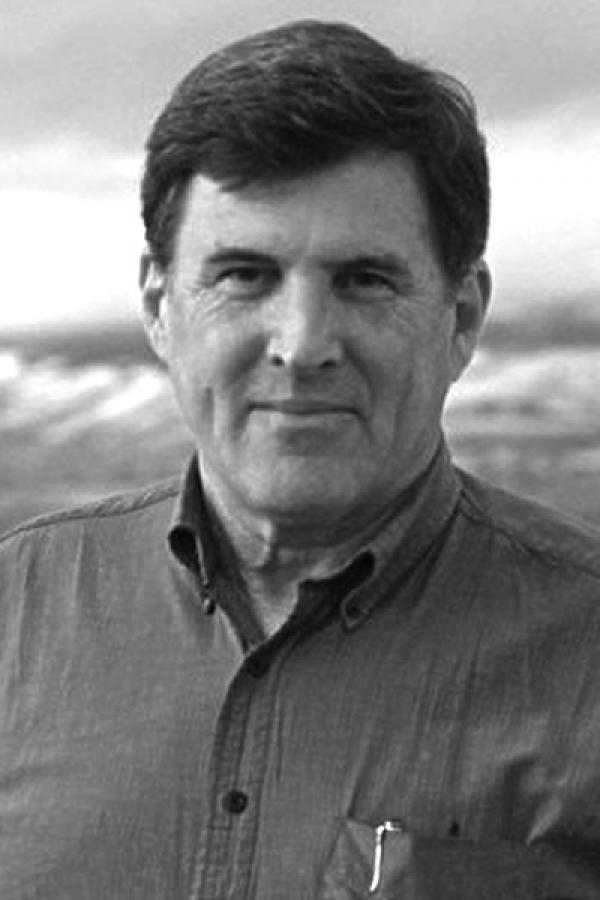David Rigsbee

Photo by Jill Bullitt
Bio
David Rigsbee is author of The Pilot House, winner of the Black River Poetry Prize (2009) and The Red Tower: New and Selected Poems (2010), named the best book for 2010 by the North Carolina Poetry Council. He is 2010 winner of the Sam Ragan Award for contribution to the arts in North Carolina. He is also winner of a Pushcart Prize (2012), the Vachel Lindsay Award, and the Pound Prize. He has previously received an NEA Fellowship and has also been recipient of fellowships and awards from the National Endowment for the Humanities, the Fine Arts Work Center in Provincetown, The Virginia Commission on the Arts, the Djerassi Foundation, and the Academy of American Poets. In addition to his poems, essays, and reviews, he has published critical books on the poetry of Joseph Brodsky and Carolyn Kizer and co-edited Invited Guest: An Anthology of Twentieth Century Southern Poetry.
Author's Statement
My new book, School of the Americas (2012), marked a departure for me. My poems have, after years of metaphysical and formal complexity, become more accessible, topical, and narrative. The themes they develop tie the private life to the public realm and finally to politics, history, and art. This is new territory for me, and I think it potentially very rich, as it implies the possibility of a kind of thematic template for thinking about future work. The National Endowment for the Arts Literature Fellowship will allow me that most precious of non-commodities, time. And just as time is needed to bring craft into alignment with ideas, so it will also enable the dream time necessary to start up new ideas--and this without customary distractions. Thanks to the NEA, I am able to retire earlier than I had planned from full-time teaching and to rent a house in Hudson, New York, which will be my writing sanctuary, inspiration, and study for six months. The area holds deep associations for me, as I published my first work and took my first leap into imaginative responsibility, while living away from the South, the region of my childhood.
Shum
I went with my teacher to a lecture once
in an ornate hall: long windows and Empire chairs.
The diminutive scholar was legendary:
he had been a confidante of Mayakovsky
and friend of the then-still-living Lilia Brik.
He had made formalism all the rage and so
blended nicely at Harvard when Stalin yanked
the choke-chain, and poets vanished in
binges of murder, imprisonment, and suicide.
We were late, and only a few unoccupied seats
were scattered about the hall. So down
the aisle we strode past more professors
than I had ever seen in one place.
Bearded, severe, they followed our entrance
with all the disapproval a Ph.D. can muster.
My teacher, a fierce blonde and former model,
bore herself with the halo of two well-received books
and parked herself on the front row, me next to her.
This distinguished professor announced that he
would recite a poem by Velimir Khlebnikov
by way of warming to his subject,
which was "sound verse," in Russian--shum.
Then he began to present what Khlebnikov
had claimed was a new poetry to counter
the tyranny of significance. Stepping gingerly
before the august audience, he started
to emit clicking sounds and to gesture
like an old-school Thespian. A silence went up
from the audience, unsure if it was
being played, or if it was just collectively
missing the boat altogether. At that point
my teacher reached into her purse
and extracted a compact and brush.
She opened the compact and gazed
at her own countenance for what seemed
a full minute, then began to brush
her hair with long strokes, pausing
every few to extract the captive hairs
and drop them on the university carpet.
The scholar pretended there was nothing
amiss and soldiered on with his rendering
of the poet's cricket impression, nonetheless
aware of the Amazonian woman not four
feet from him, so tall that in merely sitting
she easily matched his standing height.
When she had done, she put the brush away,
checked herself one last time, then snapped
the compact shut. With hands in lap
she sighed once and turned to the poetry reading
at last, letting her gray eyes come to rest
on the important little man and his recitation.
To this day, I don't know which was the better
performance. But each taught me something invaluable
about poetry, that art where I stood eager
to begin my work, that small country,
that Switzerland of decorum and peace
that lies between nonsense and vanity.

